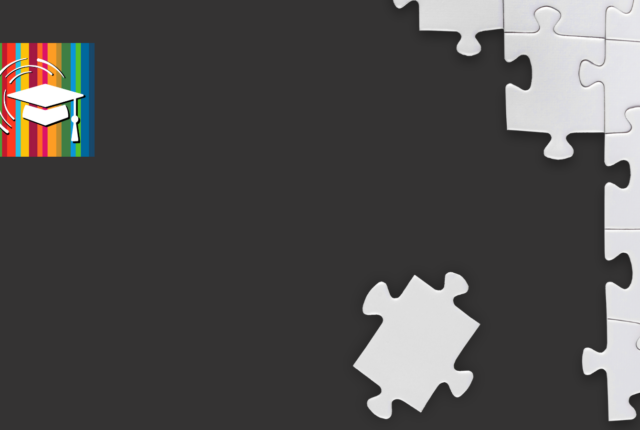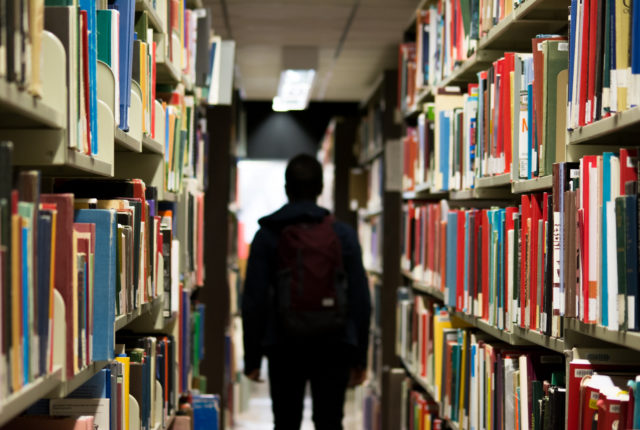What do interdisciplinary teaching and learning look like in the often siloed university environment? And how can an interdisciplinary approach strengthen the sustainable development narrative in higher education?
On September 23, 2020, the SDG Academy was proud to host a dynamic and interactive virtual event on the sidelines of the 8th Annual International Conference on Sustainable Development. The event, titled “Interconnected and Indivisible: Strengthening post-secondary education for sustainable development,” probed a broad understanding of interdisciplinary education, and allowed panelists and attendees alike to discuss and develop new ideas to meet the challenge of incorporating sustainable development into post-secondary education, particularly in the context of the COVID-19 pandemic.
The event sported speakers from across the SDG Academy’s network, including students, professors, and members of the Community of Practice, who shared their unique perspectives on how and why to approach interdisciplinary engagement for SDG education. Together, the speakers and participants explored the fundamental question, “How do we actually achieve all the SDGs?”
The event opened with an inspirational video that highlighted voices from past SDG Academy events to drive home the important role that education—and educators—play is achieving the SDGs.
SDG Academy Director Chandrika Bahadur set the stage by discussing the challenges to achieving sustainable development that COVID has brought to light. Because of the unprecedented changes to education access and delivery introduced by the pandemic, the world has been compelled to adapt in new ways.
Next came the panel of speakers moderated by SDG Academy’s Head of Program and Partnership Florencia Librizzi.
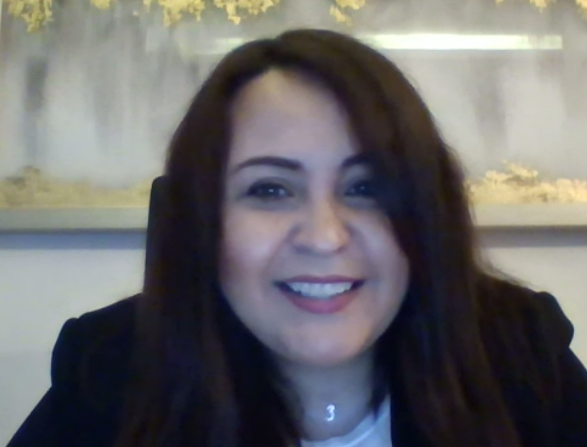
Shireen Yacoub, CEO of the Jordanian online education platform Edraak, spoke first, stressing the necessity of contextualizing and regionalizing the resources that are emerging as a result of the pandemic. She discussed how to meet learners where they are, and brought up thought-provoking examples of Edraak’s work providing education to refugees and IDPs in the region. Sharing the challenges of this experience, Shireen highlighted why partnerships are so central to meeting the goals of engagement and education. Edraak is an inspiring example of how collaboration can achieve the best results for the community.
Next, Lisa Sachs, Executive Director of the Columbia Center on Sustainable Development, discussed the lack of interdisciplinarity that she observes in her teaching at Columbia Law School, and how the COVID-19 pandemic is a perfect example of the need for interdisciplinary thinking. Education holds a tremendous role in exposing students and practitioners to different disciplines. “Kindergarten is not too young,” she said, to introduce the interdisciplinary field of sustainable development.
University of Waterloo Master’s in Development Practice alumna and enthusiastic SDG Academy supporter Eliana Fleifel offered her perspective as a recent graduate and sustainability communicator. She highlighted her experiences from the MDP program and discussed how she uses her communications role to integrate sustainable development into disciplines across the board. She encouraged session attendees to “empower youth, and empower your network” in order to shift away from business-as-usual and accomplish the SDGs.
Continuing this theme, Prof. John Dilyard from St. Francis College in Brooklyn, NY, declared that sustainability should not be confined to honors students. He shared how he has been lobbying his administration for sustainability content to be taught in courses like biology, economics, and business management. He also discussed the advantages of initiatives like the SDG Academy Community of Practice for building momentum around these approaches, and how tools like the SDG Academy Library give educators access to relevant, high-quality SDG-related content that can create a more interdisciplinary experience for students.
Finally, Sam Barratt, Chief of Education & Youth at UN Environment and Co-chair of the Higher Education Sustainability Initiative, discussed how to scale up these efforts to create a more holistic education for sustainable development. He highlighted how universities can be transformative in overcoming systemic challenges. By thinking about the whole student experience, interdisciplinary approaches to sustainability become central to individual passions.
Florencia then led the panelists through a roundtable discussion where the speakers discussed how to motivate educators and students alike to engage with the principles of sustainable development, how to overcome the traditional silos of academic disciplines, and the resources that are available to help educators begin to address the SDGs in their teaching. “The students in each of these areas are interested and recognize the interconnections. So I think working with the students—those within the universities and in international networks—to harness the student interest in exploring these areas can progressively influence institutions to create offerings that meet students’ demand,” said Lisa Sachs.
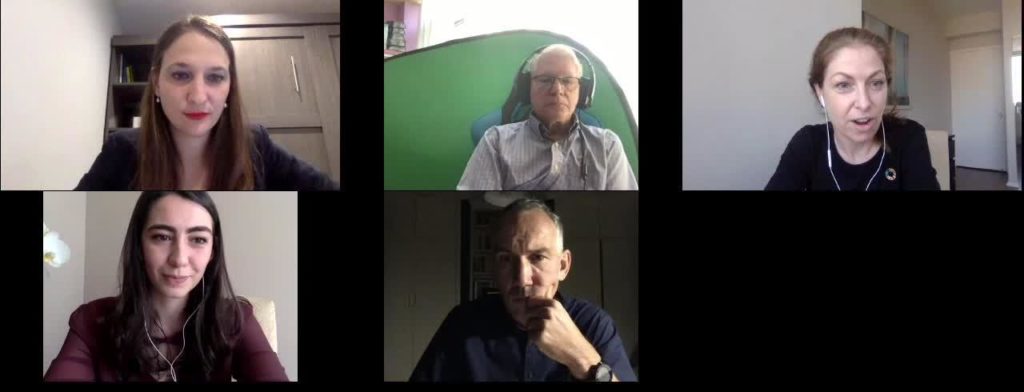
The panel discussion was followed by breakout discussions, where attendees engaged with each other to reflect on the opportunities and challenges associated with interdisciplinary SDG education, as well as the role of organizations like the SDG Academy in driving forward the interdisciplinary agenda.
Meredith Storey, Education Manager at the SDG Academy, summed up the session by allowing attendees to share the outcomes of their discussions—with one attendee even calling in from a clean room at Duke University to share her thoughts.
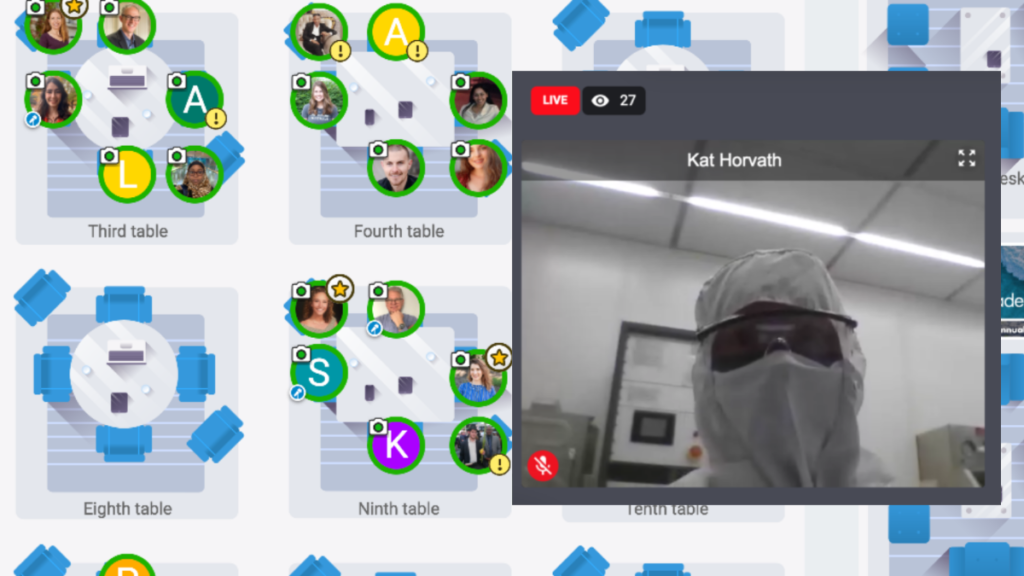
Chandrika concluded the event with some final thoughts and reflections. “Change is hard,” she noted, but it is young people themselves who are driving the demand for more sustainable development content in education, and that should motivate us all to make the necessary changes. She also reemphasized the challenges associated with interdisciplinary teaching, both in terms of knowledge and resources, and encouraged educators to seek out resources like the SDG Academy and others who are devoted to helping them improve their ability to teach in this integrated way.
Thank you to all our speakers and attendees for contributing to this important conversation about strengthening the sustainable development narrative through interdisciplinary education.
Click here to watch a complete recording of the event in our SDG Academy Library.

